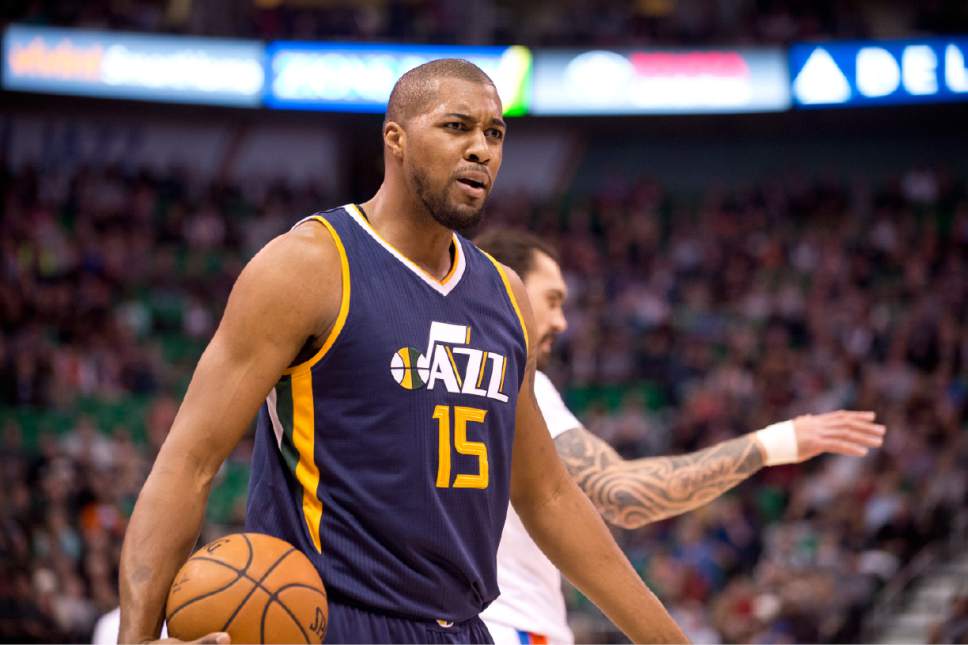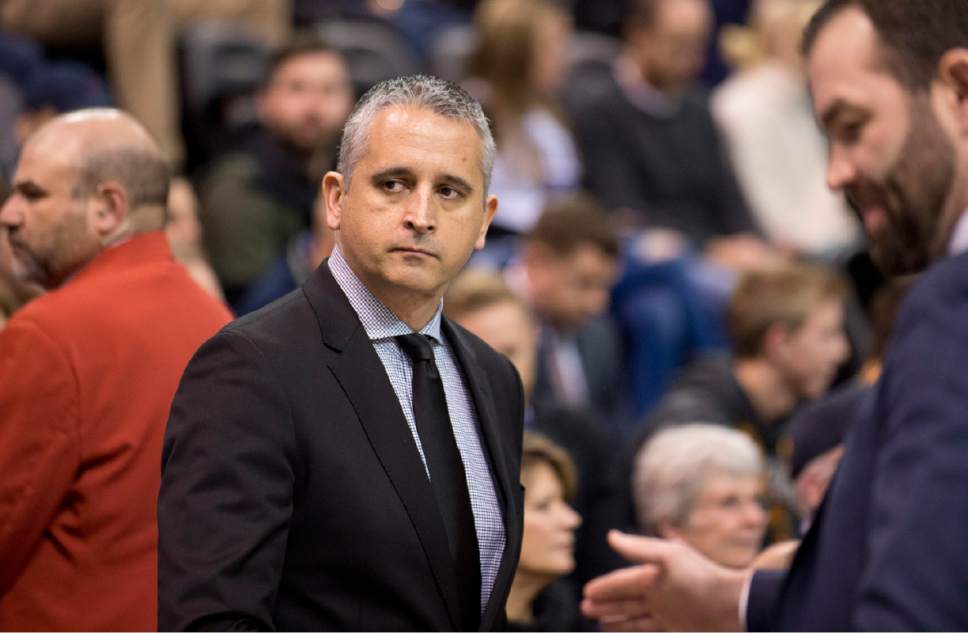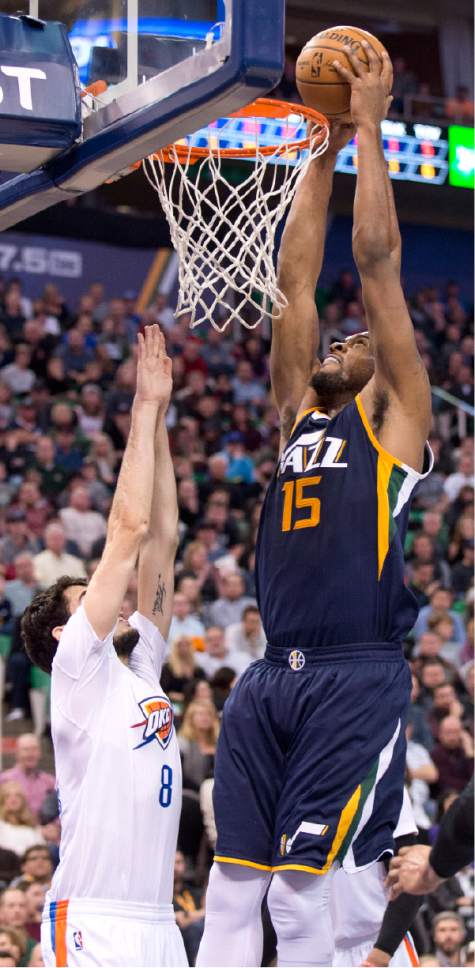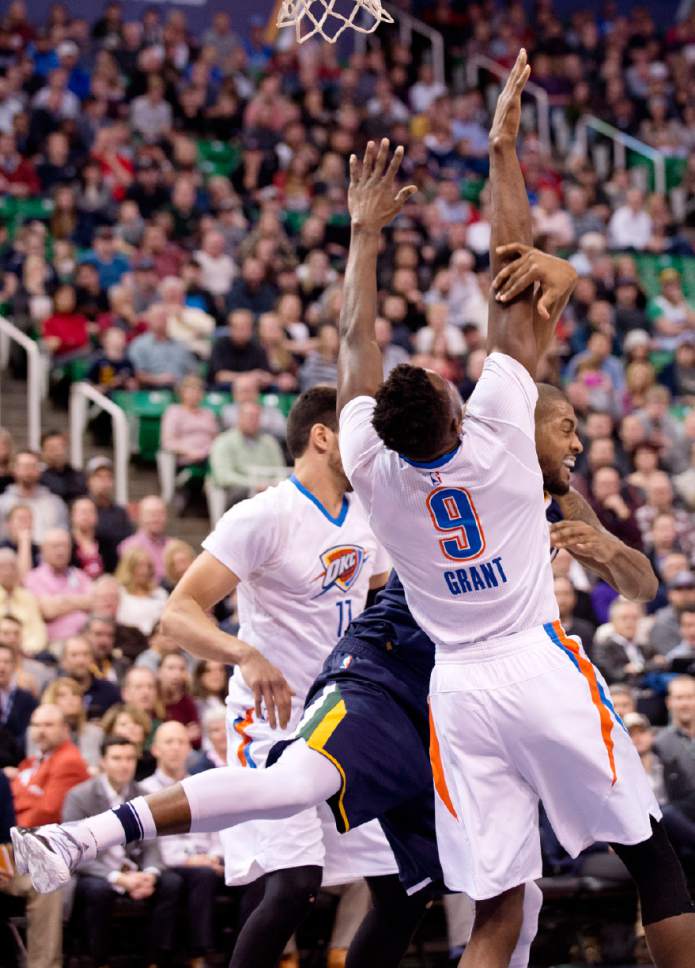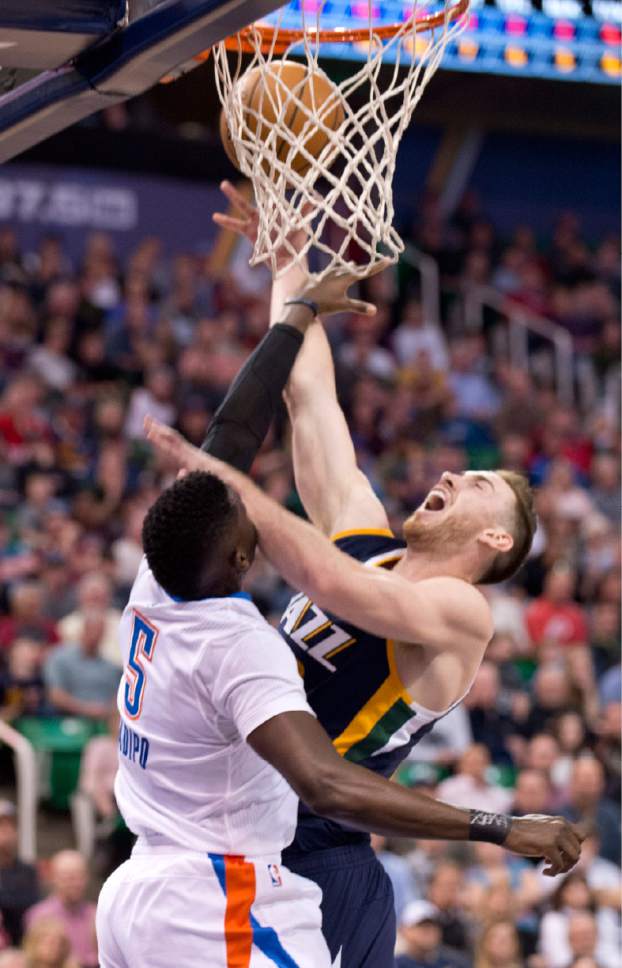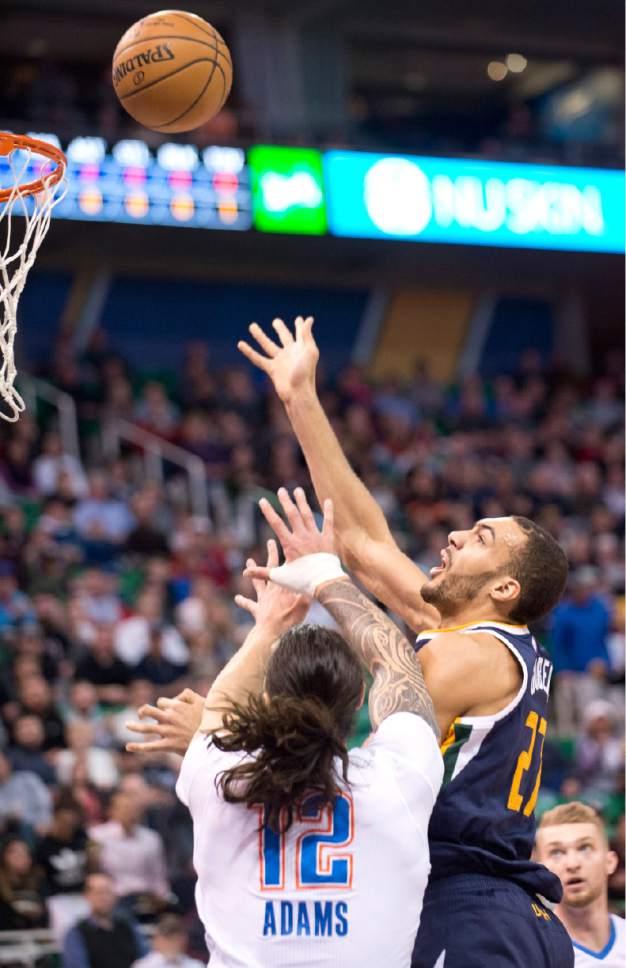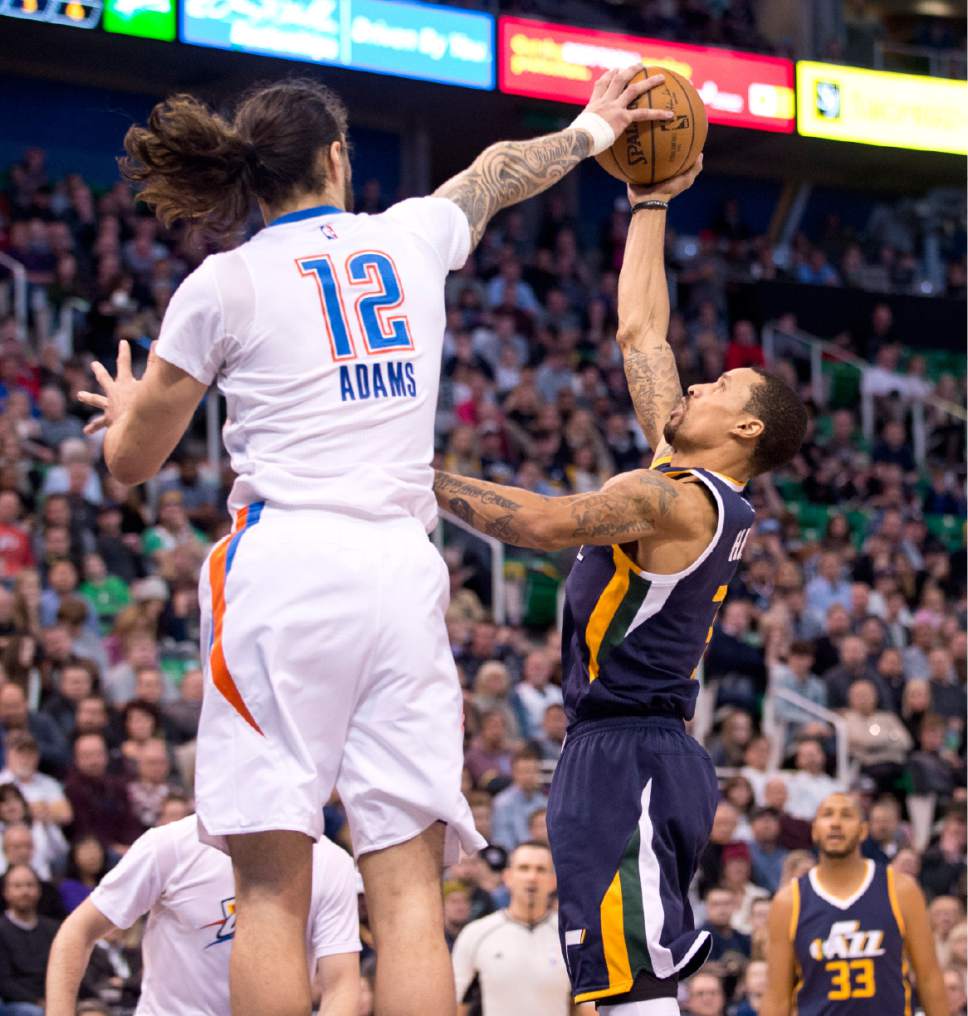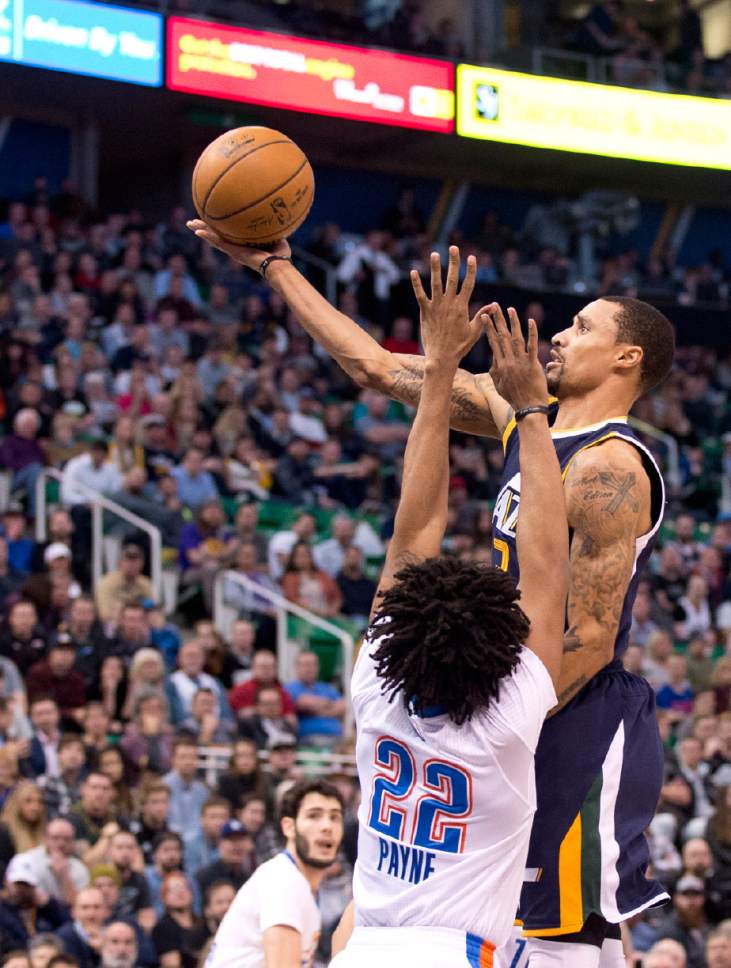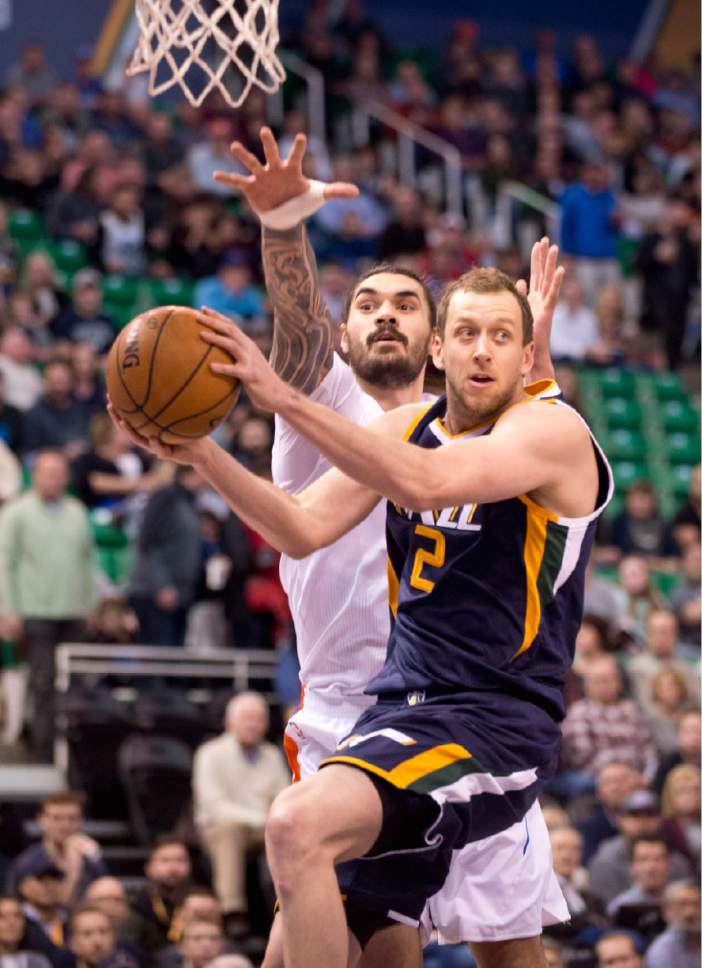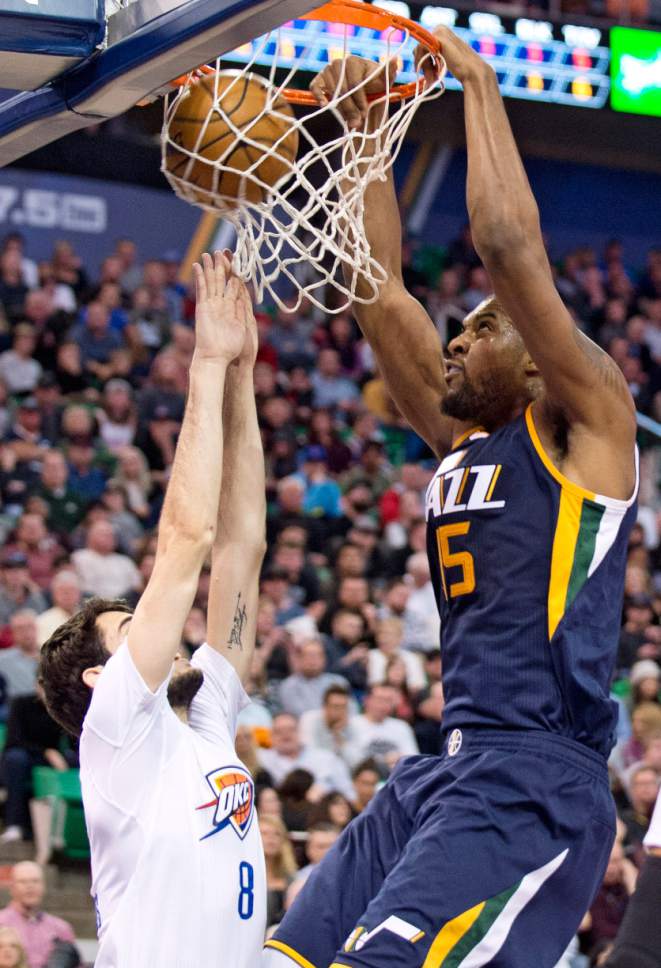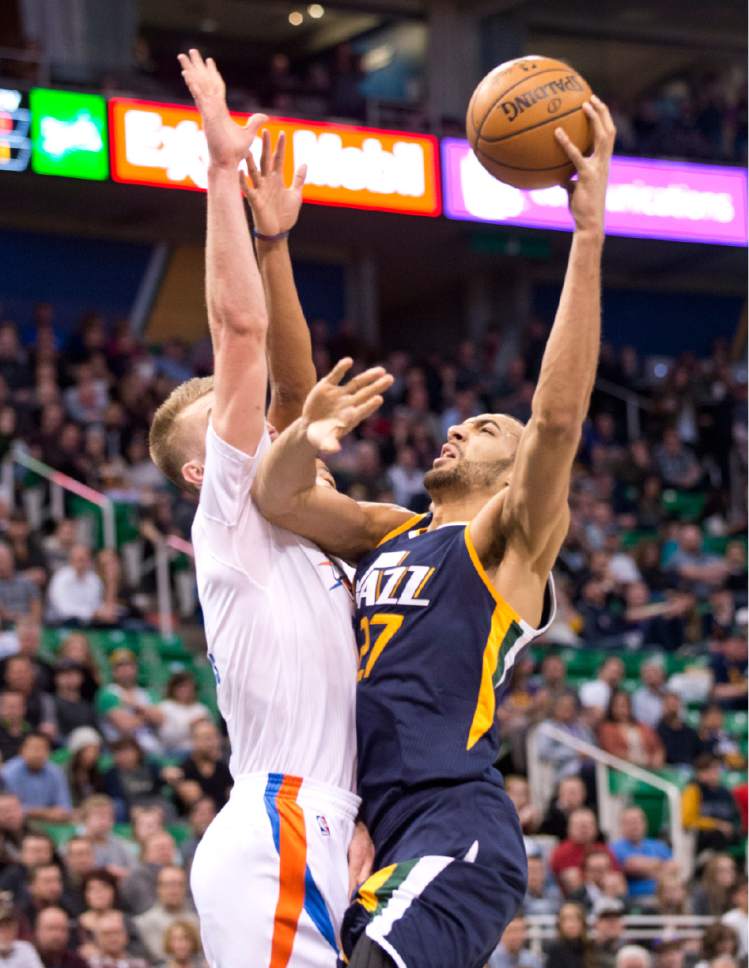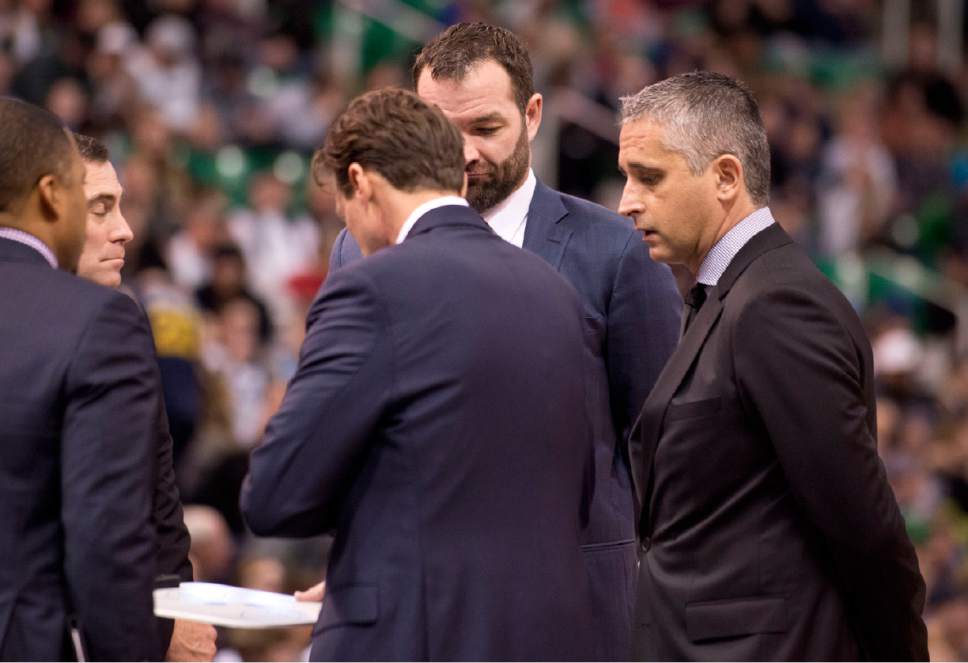This is an archived article that was published on sltrib.com in 2017, and information in the article may be outdated. It is provided only for personal research purposes and may not be reprinted.
According to the script of the day, Alec Burks' 3-pointer from the left corner was supposed give the Jazz a seventh straight victory Monday night as fans celebrated the announcement of the franchise's increased stability in Utah.
His shot instead sailed slightly wide left, hitting the back of the rim and reminding everyone at Vivint Smart Home Arena that the Jazz's climb into prime playoff position in the Western Conference will be difficult and complicated. The 97-95 loss to Russell Westbrook and the Oklahoma City Thunder is forgivable, just because it is unreasonable to think the Jazz suddenly will win every close game now that they've become much better finishers.
The reality is they probably should have lost last week at Phoenix or Dallas (or both), and the close games tend to even out — although that sure didn't happen last season. In any case, the Jazz missed an opportunity to beat OKC in a weird game when the Jazz starters struggled and the Thunder scored only six points in the first nine minutes of the third quarter.
Long before Gordon Hayward's tying 3-pointer or Westbrook's go-ahead jumper or Burks' would-be winning shot, the Jazz (29-17) lost this game when they couldn't maintain a nine-point lead in the fourth quarter with Westbrook resting. So they fell one game behind the No. 4 Los Angeles Clippers in the West and their edge over No. 6 Oklahoma City was cut to 2.5 games.
It's going to be a fight to the finish for the No. 4 spot and home-court advantage in the first round of the playoffs. The Jazz probably need to get ahead while the Clippers' Chris Paul is sidelined, and hold on from there.
Anyone would have to like the Jazz's position, especially considering they haven't made the playoffs since 2012 or won a playoff game since 2010. This season has been fun. But there were reminders Monday of how difficult it will be to finish strong and win any playoff games — much less a series.
Jazz coach Quin Snyder kept searching for fresh, effective players against OKC, using all kinds of combinations. Even with Rodney Hood injured, Snyder has so many personnel choices that he's inevitably going to be second-guessed when his rotation doesn't result in a win.
Snyder's selection of a backup point guard has been unpredictable lately, almost resembling the experimentation of the preseason schedule. Monday was Dante Exum's turn, just when Raul Neto had come out of storage and seemed to be playing well, which followed Shelvin Mack's stint as the starter when George Hill was injured. And now Mack is buried.
As I've said, keeping players engaged is one of Snyder's challenges with a deep roster, so the mixing and matching doesn't bother me at this stage. The Jazz eventually will need some kind of dependable rotation as they move into the playoffs.
Right now, it is evident that the Jazz just need to get through this week. Tuesday's game at Denver, especially, appears almost impossible for a worn-down team. Close games, win or lose, come with an emotional toll. Snyder spoke Monday of the "dog days" of the schedule, and he's right. The Jazz need the upcoming All-Star break to regroup.
And regardless of how Thursday's announcement of the All-Star Game reserves plays out, it will be interesting to see how the Jazz react. I've never witnessed anything around here quite like the anxiety about whether Hayward or Rudy Gobert will be picked by the Western Conference coaches. There was no such angst about Carlos Boozer, Mehmet Okur or Deron Williams a decade or so ago.
The Jazz and their fans want some validation for the team's rise; that's understandable. And I don't discount the theory that if Hayward recognizes he can become an All-Star in Utah, he would be more inclined to stay here. That makes Thursday's news meaningful. Even more important is how the Jazz respond, between now and the All-Star break.
Twitter: @tribkurt


